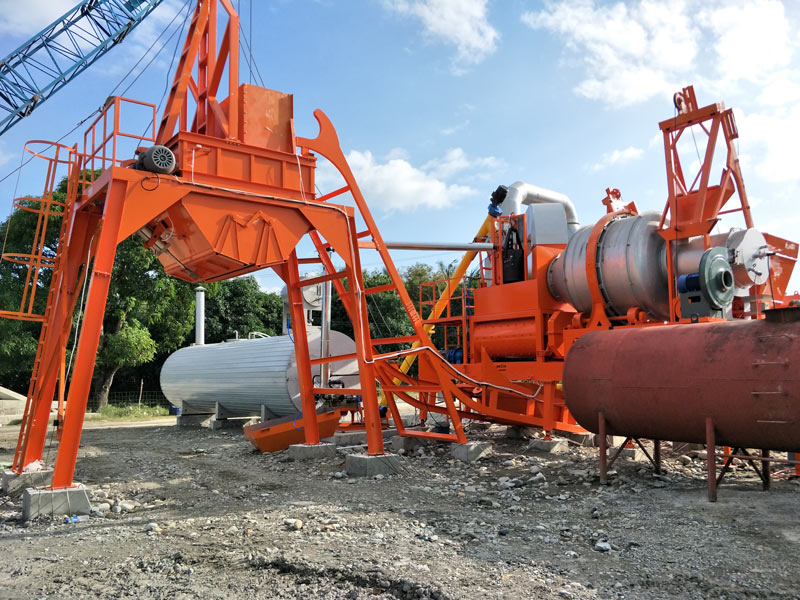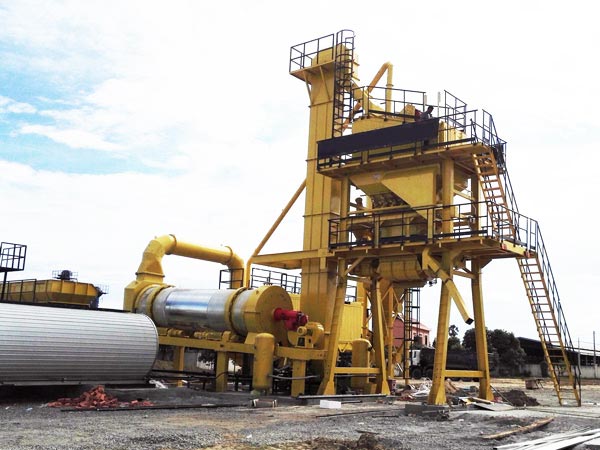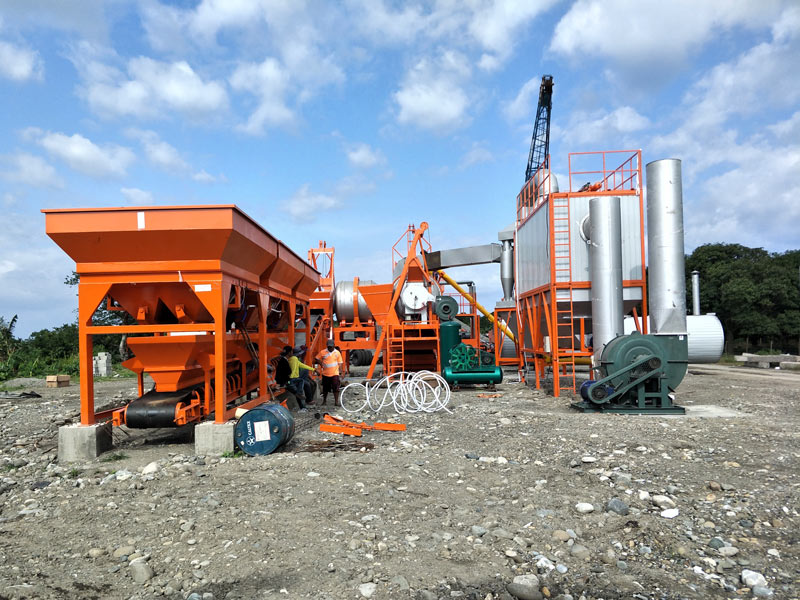Drum continuous type asphalt mixing plants are widely used in the construction industry due to their efficient and continuous production capabilities. Several factors can affect the performance and efficiency of these plants. Let’s explore the key factors that impact continuous asphalt plants:
Raw Material Quality
The quality of raw materials, such as aggregates (stone, sand, and filler materials) and asphalt binder, significantly affects the performance of the asphalt mix produced by the plant. It is essential to ensure that the raw materials meet the specified standards and have the appropriate gradation, cleanliness, and asphalt content. Poor-quality materials can result in substandard asphalt mix, affecting the durability and performance of the final pavement.

Plant Design and Configuration
The design and configuration of the drum continuous type asphalt mixing plant play a crucial role in its performance. Factors such as the drum size, burner capacity, heating system, and mixing system design can impact the efficiency, production capacity, and quality of the asphalt mix. A well-designed batch type asphalt plant with optimized components ensures proper heating, drying, and mixing of the aggregates and asphalt binder, resulting in a high-quality asphalt product.
Temperature Control
Temperature control is critical in asphalt mixing plants to achieve the desired asphalt mix consistency and quality. The temperature of the aggregates, asphalt binder, and the mixing drum must be carefully controlled throughout the production process. Improper temperature control can lead to uneven heating, insufficient drying, or over- or under-mixing, affecting the performance and durability of the asphalt mix.
Drum Rotation Speed
The rotation speed of the mixing drum in a continuous type asphalt plant affects the mixing time and the quality of the asphalt mix. Optimal drum rotation speed ensures thorough mixing of aggregates and asphalt binder, resulting in a homogeneous mix with proper coating and adhesion. Adjusting the drum rotation speed based on the specific mix requirements and ambient conditions is crucial to achieve the desired mix consistency.
Dust Collection and Emission Control
Drum continuous type asphalt mixing plants generate dust and emissions during the production process. Effective dust collection systems and emission control mechanisms are essential to comply with environmental regulations and maintain a safe working environment. Proper installation and maintenance of dust collectors, including bag filters or wet scrubbers, help minimize the release of pollutants into the atmosphere.

Maintenance and Calibration
Regular maintenance and calibration of the plant components are vital for optimal performance. This includes inspecting and cleaning the drum, burner, drying system, and other components, as well as calibrating temperature sensors, flow meters, and other control systems. Proper maintenance ensures the plant operates at its maximum efficiency, minimizes downtime, and extends the lifespan of the stationary asphalt batch plant equipment.
Operator Skill and Training
The skill and expertise of the plant operators play a significant role in the performance of the drum continuous type asphalt mixing plant. Operators should be properly trained in plant operation, maintenance, and troubleshooting to ensure smooth and efficient production. Adequate training helps prevent errors, optimize process control, and maximize the overall plant performance.

By considering these factors and implementing best practices, contractors can optimize the performance and efficiency of drum continuous type asphalt mixing plants, leading to high-quality asphalt mixes and successful construction projects.